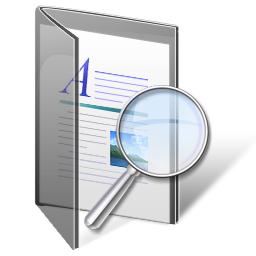 We understand the pivotal role that a well-crafted thesis plays in your academic journey. It represents the culmination of years of research, dedication, and intellectual rigor. However, even the most meticulous scholars can encounter errors that compromise the quality and impact of their work. This is where we come in to offer our expertise and guidance. We will help you explore a range of effective strategies that we can help you implement to correct errors comprehensively. From proofreading and editing to peer review and professional assistance in rectifying thesis mistakes, our goal is to empower you to produce a polished and impressive final document that stands out for its clarity, coherence, and academic rigor. Our team of experts is committed to providing you with the knowledge and tools necessary to navigate the intricate process of mistakes correction. We understand the challenges you may face and are here to support you every step of the way. So, let's dive into these strategies together, ensuring that your thesis not only meets but exceeds the highest academic standards. With our guidance, you can confidently correct errors and present a thesis that showcases your intellectual prowess and dedication to academic excellence.
We understand the pivotal role that a well-crafted thesis plays in your academic journey. It represents the culmination of years of research, dedication, and intellectual rigor. However, even the most meticulous scholars can encounter errors that compromise the quality and impact of their work. This is where we come in to offer our expertise and guidance. We will help you explore a range of effective strategies that we can help you implement to correct errors comprehensively. From proofreading and editing to peer review and professional assistance in rectifying thesis mistakes, our goal is to empower you to produce a polished and impressive final document that stands out for its clarity, coherence, and academic rigor. Our team of experts is committed to providing you with the knowledge and tools necessary to navigate the intricate process of mistakes correction. We understand the challenges you may face and are here to support you every step of the way. So, let's dive into these strategies together, ensuring that your thesis not only meets but exceeds the highest academic standards. With our guidance, you can confidently correct errors and present a thesis that showcases your intellectual prowess and dedication to academic excellence.
What are the Most Effective Strategies for Correcting Thesis Errors?
- Thorough Proofreading and Editing: Proofreading and editing are foundational steps in the thesis correction process. A fresh set of eyes can identify errors, inconsistencies, and areas that require improvement. Review your thesis for grammar and punctuation mistakes, spelling errors, and formatting issues. Pay special attention to sentence structure and clarity. Consider using professional proofreading services or collaborating with peers for an objective assessment of your work.
- Peer Review: Peer review is an invaluable strategy for correcting mistakes in a project. Engage with fellow students or colleagues who are knowledgeable in your field to review your thesis. They can offer valuable insights, identify logical flaws, and suggest improvements. Peer reviewers can also help you spot errors that you may have overlooked due to your familiarity with the content.
- Use Citation Management Tools: Improper citations and referencing are common errors that can have serious consequences. Use citation management tools to ensure accurate and consistent citations throughout your thesis. These tools also help you generate citations and bibliographies in various citation styles, saving you time and ensuring correctness.
- Plagiarism Check: Plagiarism is a grave academic offense that can ruin your thesis and your academic career. Always run a plagiarism check on your thesis using reputable plagiarism detection tools such as Turnitin or Copyscape. Ensure that all borrowed ideas and words are properly cited, and if in doubt, seek guidance from your academic advisor.
- Seek Professional Assistance: When in doubt, seek professional assistance. We offer specialized thesis errors correction help that includes in-depth editing, proofreading, and feedback. Professionals in your field can provide expert guidance and help you eliminate errors that may undermine your thesis's credibility.
- Ensure Logical Flow and Organization: A thesis should present a logical flow of ideas, with each section and paragraph seamlessly connecting to the next. Ensure that your thesis is well-organized, with a clear introduction, well-structured chapters, and a compelling conclusion. Correct any abrupt transitions or disconnected ideas that may hinder the reader's understanding.
- Data Analysis and Interpretation: Thesis mistakes often stem from incorrect data analysis or interpretation. Double-check your data and statistical analysis, ensuring that your findings align with your research questions and objectives. Seek guidance from a statistician or data analyst if you are uncertain about the accuracy of your results.
- Check Clarity and Conciseness: A common thesis error is the use of overly complex language and convoluted sentences. Strive for clarity and conciseness in your writing. Avoid jargon unless necessary, and use straightforward language to convey your ideas. Eliminate unnecessary words and phrases that may confuse readers.
- Ensure Consistency in Terminology: In academic writing, consistency is key. Ensure that you use consistent terminology and definitions throughout your thesis. Create a list of key terms and their definitions to maintain coherence in your work. Correct any inconsistencies that may arise in the course of your research.
- Follow Thesis Guidelines: Institutional guidelines play a crucial role in thesis correction. Familiarize yourself with your institution's thesis formatting and submission requirements. Ensure that your thesis adheres to these guidelines in terms of margins, fonts, citation styles, and page numbering. Deviating from these guidelines can result in unnecessary errors.
- Time Management: Effective time management is essential when correcting mistakes. Allocate sufficient time for proofreading, editing, and making necessary revisions. Avoid last-minute corrections, as they may lead to rushed and incomplete revisions.
- Seek Feedback from Advisors: Your academic advisor is an invaluable resource in the thesis correction process. Seek feedback and guidance from your advisor at various stages of your thesis work. They can provide insights into the strengths and weaknesses of your research and help you correct errors effectively.
Correcting thesis errors is a crucial step in producing a high-quality academic document. By employing the strategies outlined above, you can ensure that your thesis is error-free, well-organized, and a testament to your dedication to your research. Remember that perfection is a process, and with diligence and the right approach, you can produce a thesis that stands as a testament to your scholarly achievements.
Help with Correcting Errors in a Thesis - Reliable Guidance
 When working on a thesis, it's not uncommon to come across errors that need fixing. We all make mistakes, but what matters most is how we address and correct them. That's where we come in to help you on your academic journey. We'll guide you through the process of handling errors in your thesis, shedding light on common mistakes students make and why it's crucial to correct them. Discovering errors in your thesis can be overwhelming, but don't worry, it's a natural part of the research process. We'll guide you on how to correct thesis errors efficiently, ensuring that your thesis shines. From staying calm and seeking feedback to using proofreading tools and considering professional help, we've got you covered. We will also help you uncover the most frequent errors students make while writing their theses, such as grammar and citation mistakes, poor organization, and lack of clarity. Understanding these common pitfalls will help you avoid them in the first place. Lastly, we'll emphasize why it's essential to correct errors in your thesis. It goes beyond just fixing mistakes; it's about maintaining academic credibility, enhancing clarity, preventing plagiarism, showcasing professionalism, and opening doors to publication opportunities and academic success. So, let's dive in and learn how to make your thesis error-free and impressive.
When working on a thesis, it's not uncommon to come across errors that need fixing. We all make mistakes, but what matters most is how we address and correct them. That's where we come in to help you on your academic journey. We'll guide you through the process of handling errors in your thesis, shedding light on common mistakes students make and why it's crucial to correct them. Discovering errors in your thesis can be overwhelming, but don't worry, it's a natural part of the research process. We'll guide you on how to correct thesis errors efficiently, ensuring that your thesis shines. From staying calm and seeking feedback to using proofreading tools and considering professional help, we've got you covered. We will also help you uncover the most frequent errors students make while writing their theses, such as grammar and citation mistakes, poor organization, and lack of clarity. Understanding these common pitfalls will help you avoid them in the first place. Lastly, we'll emphasize why it's essential to correct errors in your thesis. It goes beyond just fixing mistakes; it's about maintaining academic credibility, enhancing clarity, preventing plagiarism, showcasing professionalism, and opening doors to publication opportunities and academic success. So, let's dive in and learn how to make your thesis error-free and impressive.
What should you do if you find errors in your thesis paper?
 Discovering errors in your thesis paper is a natural part of the research process, and when this happens, it's essential not to panic but to follow a systematic approach for effective correction. First, maintain a calm and positive mindset, understanding that the correction process is an opportunity for growth and improvement. Carefully review your entire thesis to identify the nature and extent of the errors, taking notes to keep track of issues. Seek feedback from peers, advisors, or professors, as their perspectives can help you pinpoint errors that might have escaped your notice. Prioritize corrections based on their impact, addressing major issues affecting clarity, coherence, or overall credibility first. Utilize proofreading and grammar-checking tools to catch spelling and grammar errors, especially common typos and language-related issues. If the errors seem overwhelming, consider seeking the assistance of a professional editing and proofreading service like ours to ensure your thesis meets the highest standards. Maintain organization by keeping a record of identified errors and corrections. After making corrections, thoroughly review your thesis once more to ensure all errors have been addressed, remembering that thoroughness is key in this process. Lastly, maintain a positive outlook, viewing the error-correction process as an opportunity for growth and refinement in your academic work.
Discovering errors in your thesis paper is a natural part of the research process, and when this happens, it's essential not to panic but to follow a systematic approach for effective correction. First, maintain a calm and positive mindset, understanding that the correction process is an opportunity for growth and improvement. Carefully review your entire thesis to identify the nature and extent of the errors, taking notes to keep track of issues. Seek feedback from peers, advisors, or professors, as their perspectives can help you pinpoint errors that might have escaped your notice. Prioritize corrections based on their impact, addressing major issues affecting clarity, coherence, or overall credibility first. Utilize proofreading and grammar-checking tools to catch spelling and grammar errors, especially common typos and language-related issues. If the errors seem overwhelming, consider seeking the assistance of a professional editing and proofreading service like ours to ensure your thesis meets the highest standards. Maintain organization by keeping a record of identified errors and corrections. After making corrections, thoroughly review your thesis once more to ensure all errors have been addressed, remembering that thoroughness is key in this process. Lastly, maintain a positive outlook, viewing the error-correction process as an opportunity for growth and refinement in your academic work.
What are the most common errors students make when writing their theses?
- Grammar and Spelling Errors: These errors can range from simple typos to more complex grammatical mistakes that affect the clarity and readability of the thesis. Addressing these issues ensures that your writing is polished and professional. Our experts who offer credible help with correcting errors in a thesis can assist in identifying and correcting grammar and spelling mistakes in your paper.
- Citation and Referencing Mistakes: Inaccurate or inconsistent citation of sources can lead to plagiarism issues or a lack of academic rigor. Correct referencing is critical for giving credit to original sources and maintaining academic integrity.
- Formatting Inconsistencies: Failure to adhere to the institution's formatting guidelines can result in a disjointed and unprofessional-looking thesis. Paying attention to formatting details ensures your thesis has a cohesive and professional appearance.
- Poor Organization: Weak organization can make it difficult for readers to follow the flow of your arguments and ideas, resulting in a less compelling thesis. Improving the organization of your work enhances its overall coherence and readability.
- Lack of Clarity: Complex language, convoluted sentences, and vague explanations can obscure your ideas and weaken your thesis's impact. Ensuring clarity and simplicity in your writing improves communication with your readers.
- Inadequate Proofreading: Rushing through the proofreading process or relying solely on automated tools can result in missed errors and inconsistencies. Thorough proofreading is essential for identifying and correcting all types of errors.
- Logical Flaws: Inconsistent or unsupported arguments, lack of evidence, or weak analysis can undermine the credibility of your thesis. Addressing logical flaws strengthens your thesis's overall integrity and persuasiveness.
- Failure to Address Feedback: Ignoring or dismissing feedback from peers or advisors can lead to persistent errors and missed opportunities for improvement. Actively engaging with feedback can help you refine your work and correct errors effectively.
Why is it essential to correct errors in your thesis?
- Academic Credibility: Errors can compromise the academic credibility of your thesis. Correcting them ensures that your work adheres to the highest scholarly standards. A well-corrected thesis reflects your commitment to producing quality research.
- Clarity and Impact: Errors can distract readers from your research and ideas. A well-corrected thesis communicates your findings clearly and leaves a lasting impact. It enables your readers to focus on the substance of your work.
- Prevention of Plagiarism: Accurate citation and referencing prevent unintentional plagiarism, a serious academic offense. Correct referencing acknowledges the contributions of others and demonstrates academic integrity.
- Professionalism: Correcting mistakes demonstrates your commitment to professionalism and attention to detail, qualities highly regarded in academia and beyond. It showcases your dedication to producing high-quality academic work.
- Publication Opportunities: If you plan to publish your thesis in academic journals, error correction is crucial. Journals often have stringent standards for error-free submissions. Correcting mistakes enhances your chances of successful publication.
- Academic Success: Your thesis is a reflection of your academic prowess. Correcting mistakes can lead to higher grades, better academic standing, and improved career prospects. It positions you for continued success in your academic journey.
Discovering errors in your thesis is a common and manageable part of the research process. By following the steps outlined above and addressing common student errors, you can effectively correct and enhance your thesis. Correcting project mistakes is not just about achieving perfection; it's about presenting your research with professionalism and making a lasting impression on your academic journey. Our team is here to offer the best research project correction services, ensuring that your thesis reflects your dedication to academic excellence.






 Efficiently identifying errors in your thesis project is crucial to ensure its quality and credibility. Start by undertaking a thorough proofreading process, meticulously examining your work for grammar, punctuation, and spelling errors. Enlist the assistance of peers, colleagues, or fellow students for a fresh perspective on your thesis; they often spot errors or inconsistencies you might have missed. When you need someone to correct your thesis errors, consider the expertise of our professional editors who specialize in correcting mistakes. This approach ensures that your work meets the highest academic standards. Employ proofreading and grammar-checking tools to catch common errors and enhance overall writing quality. Utilize citation management software to guarantee precise and consistent citations and references throughout your thesis. Conduct a comprehensive logical analysis to detect logical inconsistencies, unsupported arguments, or gaps in your research, aligning your work with your research objectives and questions. Lastly, consult your academic advisor or mentor for invaluable feedback and guidance, pinpointing areas that require correction and improvement. These efficient methods collectively enhance the overall quality of your thesis and its readiness for submission.
Efficiently identifying errors in your thesis project is crucial to ensure its quality and credibility. Start by undertaking a thorough proofreading process, meticulously examining your work for grammar, punctuation, and spelling errors. Enlist the assistance of peers, colleagues, or fellow students for a fresh perspective on your thesis; they often spot errors or inconsistencies you might have missed. When you need someone to correct your thesis errors, consider the expertise of our professional editors who specialize in correcting mistakes. This approach ensures that your work meets the highest academic standards. Employ proofreading and grammar-checking tools to catch common errors and enhance overall writing quality. Utilize citation management software to guarantee precise and consistent citations and references throughout your thesis. Conduct a comprehensive logical analysis to detect logical inconsistencies, unsupported arguments, or gaps in your research, aligning your work with your research objectives and questions. Lastly, consult your academic advisor or mentor for invaluable feedback and guidance, pinpointing areas that require correction and improvement. These efficient methods collectively enhance the overall quality of your thesis and its readiness for submission.